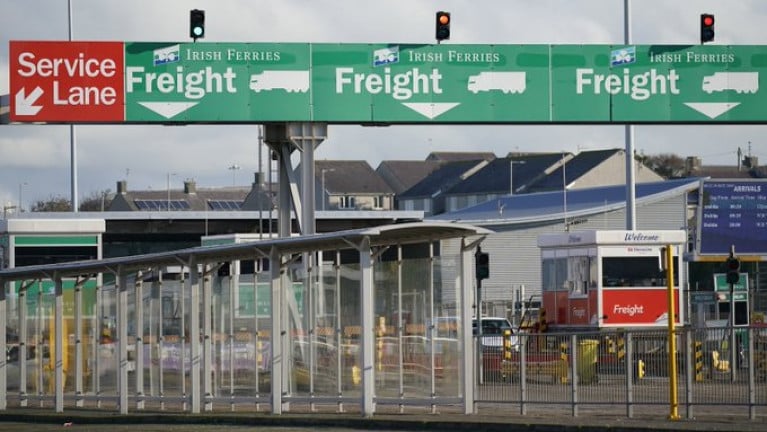Displaying items by tag: Welsh Gov fears
Welsh Government Fears Brexit Delays Notably at Holyhead
A UK parliament committee has said it is deeply concerned that no decision has been made on the location of customs facilities for the ports of Holyhead, Fishguard and Pembroke - with just 21 days left before the end of the Brexit transition period.
The Port of Holyhead is the second busiest roll-on/roll-off freight ferry port in the UK (after Dover) and about half of the outbound freight from Dublin Port passes through it.
The confused state of customs preparation on the UK side could result in long delays for Irish truck drivers moving goods in and out of the country.
The Welsh government has prepared contingency plans in case facilities are not ready, including a plan to stack lines of trucks along the A55, which is the main road from the port that stretches across north Wales.
From 1 January, the UK will be outside the EU Customs Union and full customs procedures will apply to goods moving between Ireland and Great Britain.
The British government has decided to introduce customs and food safety checks in three phases between January and July mainly because the computer systems to process the extra customs paperwork are not ready and the physical facilities to carry out customs checks have not been built.
In a report published today, the Welsh Affairs Committee of the UK parliament said that even with a delay on introducing full scale customs checks until July, "there is an unacceptable level of risk that facilities will not be ready in either North or South West Wales for the full introduction of border checks and processes in July 2021".
For much more RTE reports on the Irish Sea routes and associated UK 'land-bridge'.
























































